- 0086-571-85302990
- sales@greenskybio.com
What is ginseng root extract? Definition, types, history and nutritional value.
2024-12-20

1. Definition
Ginseng Root Extract is a concentrated form of the active components derived from the roots of the ginseng plant. The ginseng plant, a perennial herb, is highly regarded in the field of herbal medicine. It is obtained through a process of extraction that aims to isolate and preserve the beneficial substances present in the ginseng roots.
The extraction process typically involves using solvents such as water or alcohol to draw out the various compounds from the root tissue. These compounds include a wide range of phytochemicals, which are chemicals produced by plants that have potential health benefits for humans. The resulting extract is a complex mixture of these substances, which can then be used in various forms, such as in dietary supplements, cosmetics, or traditional medicine preparations.
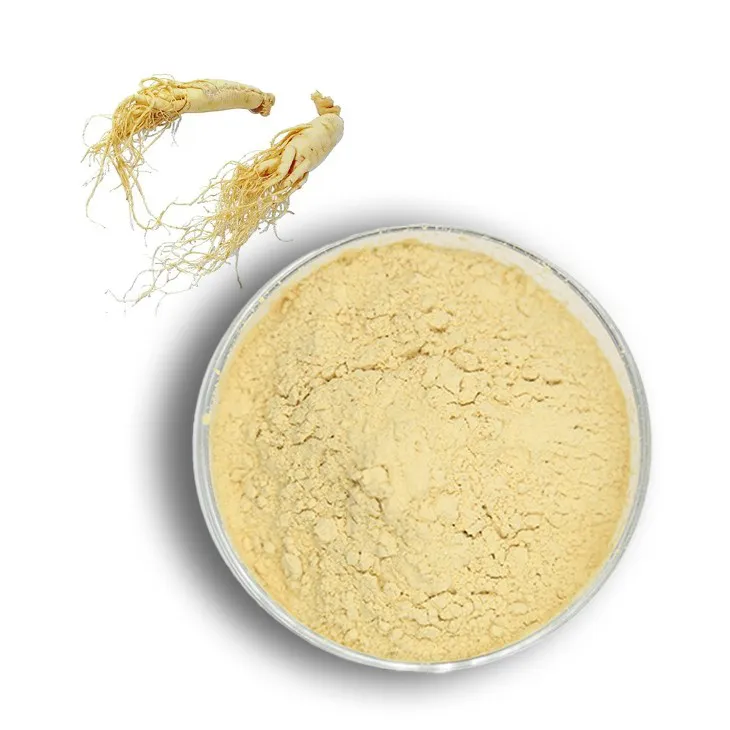
2. Types
2.1 Wild - grown Ginseng Root Extract
Wild - grown ginseng has a certain allure due to its natural growth in the wild. Wild - grown Ginseng Root Extract is often considered more precious and potent in some traditional beliefs.
However, wild - grown ginseng is becoming increasingly rare due to over - harvesting. It grows slowly in its natural habitats, which are often forests with specific ecological conditions. The extract from wild - grown ginseng may contain a different profile of compounds compared to cultivated ginseng, as it has to adapt to the natural and sometimes harsher environmental conditions. This may result in a higher concentration of certain phytochemicals, but it also makes it more difficult to obtain in large quantities and sustainably.
2.2 Cultivated Ginseng Root Extract
Cultivated ginseng is grown under controlled conditions, such as in farms or plantations. Cultivated ginseng root extract is more widely available and is produced on a larger scale compared to its wild - grown counterpart.
With proper cultivation techniques, farmers can ensure a relatively consistent quality of the ginseng roots. The extraction from cultivated ginseng can also be standardized more easily. Although some may argue that it might not have the same "wild essence" as wild - grown ginseng, modern research has shown that cultivated ginseng can still contain significant amounts of beneficial compounds, such as ginsenosides, which are important for its potential health - promoting effects.
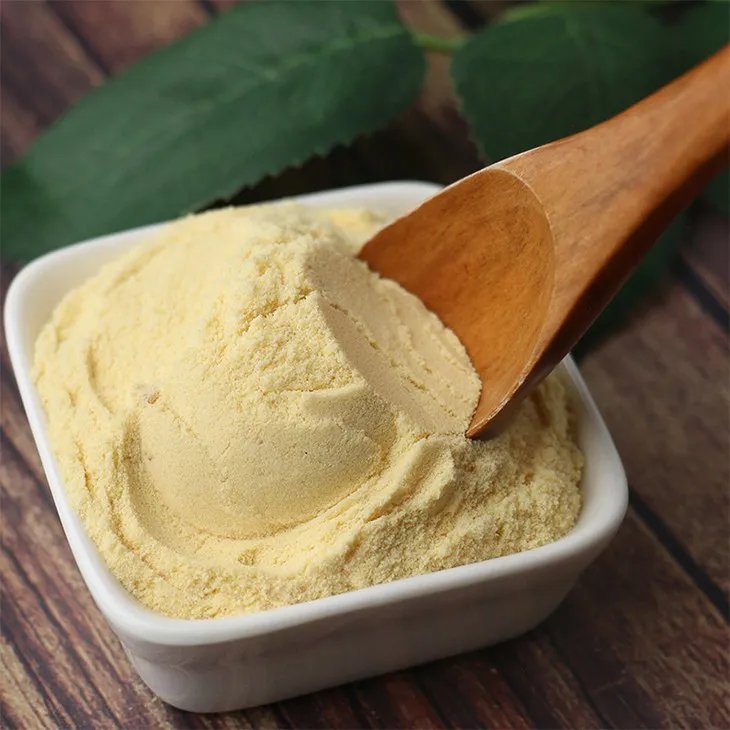
3. History
Ginseng has a long and storied history, especially in traditional medicine systems.
3.1 In East Asia
In East Asian countries like China, Korea, and Japan, ginseng has been used for thousands of years. In traditional Chinese medicine, ginseng was considered a "superior" herb. It was often used to tonify the qi (vital energy), strengthen the spleen and stomach, and enhance overall vitality. Ancient Chinese medical texts dating back to the Han Dynasty (more than 2, 000 years ago) have records of ginseng's use.
Korean ginseng, in particular, has a strong cultural and historical significance. It has been an important part of Korean traditional medicine and is also highly regarded in the global market for its quality. Korean ginseng is often associated with promoting energy, improving cognitive function, and enhancing the immune system.
3.2 Spread to the Western World
Over time, ginseng gradually made its way to the Western world. In the 18th and 19th centuries, with the increase in global trade and cultural exchanges, Westerners became aware of the potential benefits of ginseng. Initially, it was seen as an exotic and mysterious herbal remedy from the East.
Today, ginseng root extract has become a popular supplement in the Western world as well. It is often used for its purported adaptogenic properties, which means it may help the body adapt to stress. Research on ginseng in Western scientific communities has also increased, although much of its traditional uses are still being explored and verified using modern scientific methods.
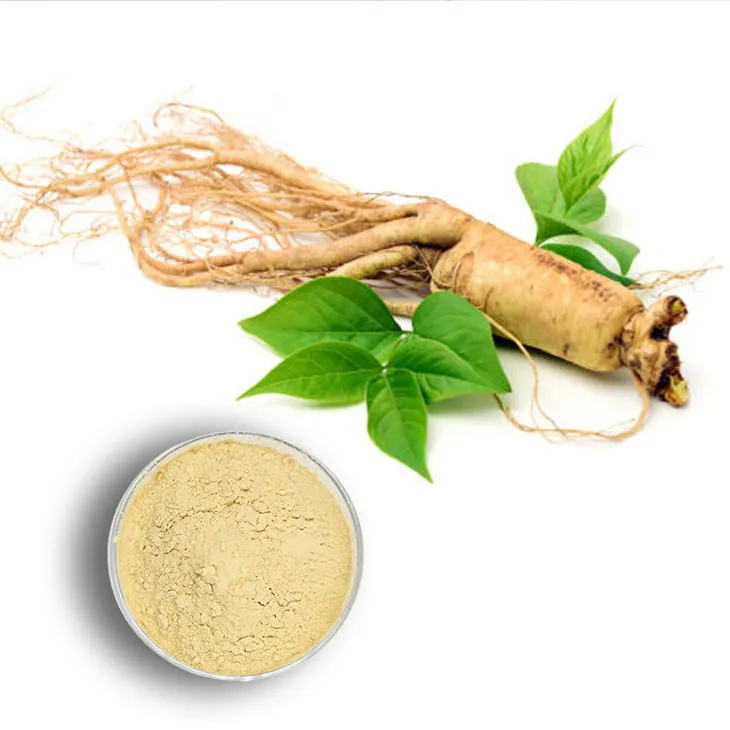
4. Nutritional Value
Ginseng root extract is rich in various nutrients and phytochemicals, which contribute to its potential health benefits.
4.1 Ginsenosides
Ginsenosides are the most well - known and studied components in ginseng root extract. They are a type of saponin, which is a class of chemical compounds. Ginsenosides play a crucial role in many of the beneficial effects associated with ginseng.
For example, they have been studied for their potential anti - inflammatory effects. Inflammation is a natural response of the body, but chronic inflammation can lead to various diseases. Ginsenosides may help regulate the body's inflammatory response, reducing the risk of developing certain inflammatory - related conditions.
They are also thought to have antioxidant properties. Antioxidants are important for neutralizing free radicals in the body. Free radicals are unstable molecules that can cause damage to cells, DNA, and other biological molecules. By acting as antioxidants, ginsenosides may help protect the body from oxidative stress, which is associated with aging and various diseases such as cancer and heart disease.
4.2 Other Phytochemicals
In addition to ginsenosides, ginseng root extract contains other phytochemicals. These include polysaccharides, which are complex carbohydrates. Polysaccharides in ginseng have been studied for their potential immune - enhancing effects. They may stimulate the activity of immune cells, such as macrophages and lymphocytes, thereby strengthening the body's immune system.
There are also flavonoids present in ginseng root extract. Flavonoids are a group of plant - based compounds with various health - promoting properties. They may contribute to ginseng's potential effects on cardiovascular health, such as reducing blood pressure and improving blood lipid profiles.
4.3 Potential Health Benefits
- Anti - aging: The antioxidant and anti - inflammatory properties of ginseng root extract, mainly due to ginsenosides and other phytochemicals, may contribute to its potential anti - aging effects. By reducing oxidative stress and inflammation, it may help slow down the aging process at the cellular level.
- Enhancing physical endurance: Ginseng has long been associated with improving physical performance. Some studies suggest that ginseng root extract may increase energy production in cells, improve oxygen utilization, and enhance muscle strength. This could potentially benefit athletes or those engaged in regular physical activity.
- Protecting the nervous system: Ginsenosides have been shown to have neuroprotective effects. They may help protect neurons from damage, improve cognitive function, and potentially reduce the risk of neurodegenerative diseases such as Alzheimer's and Parkinson's. Ginseng root extract may also help relieve stress and anxiety, which can have a positive impact on mental health.
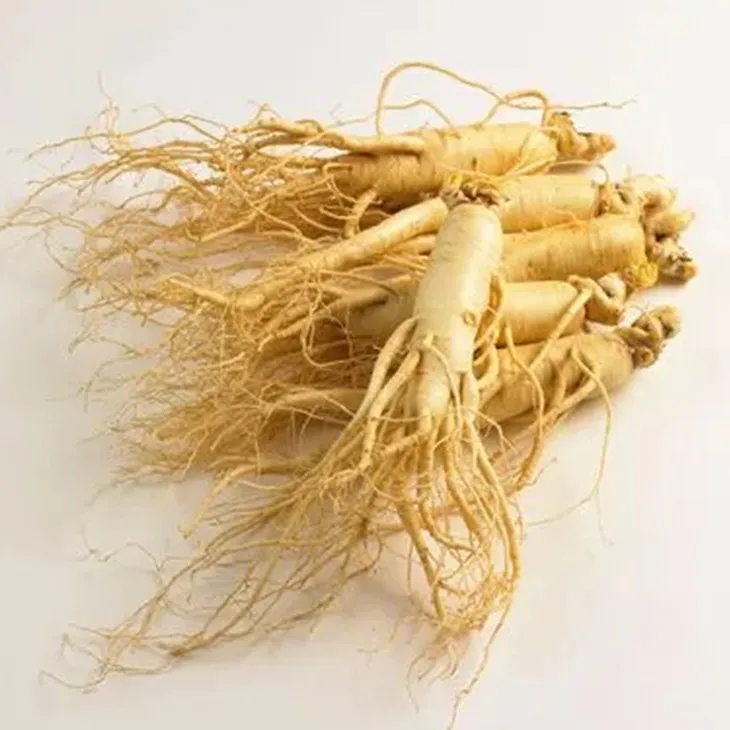
FAQ:
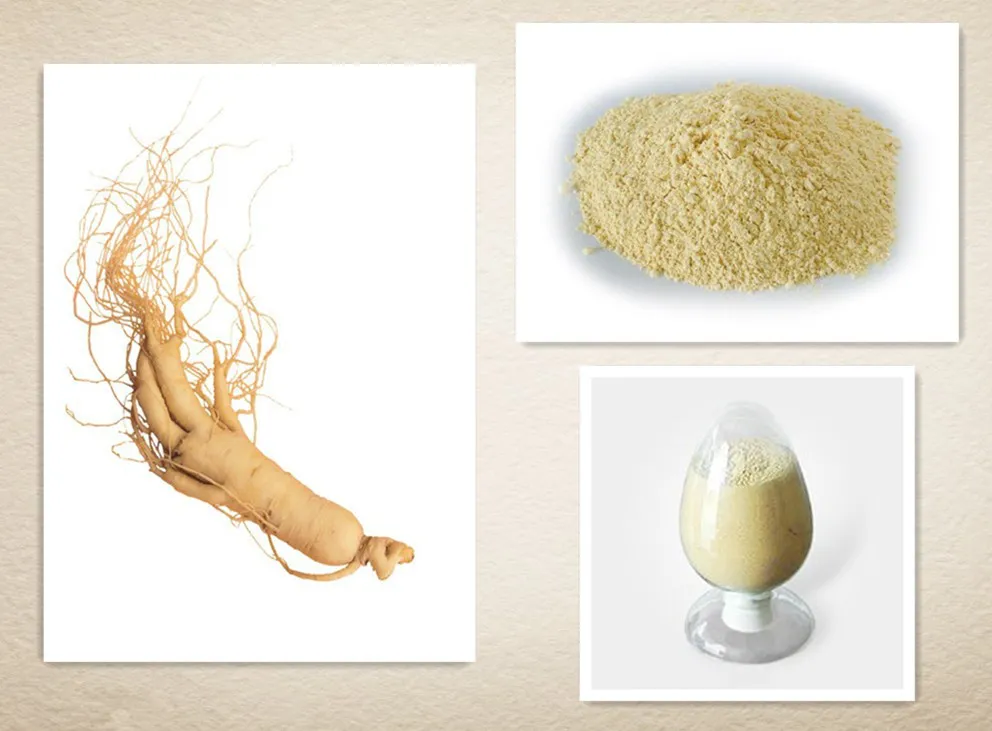
What are the main differences between wild - grown and cultivated ginseng root extracts?
Wild - grown ginseng root extract is often considered more potent and rarer. It may have a more complex chemical composition due to the natural and often harsher growing conditions. Cultivated ginseng root extract, on the other hand, is more readily available. The growing conditions of cultivated ginseng can be more controlled, which may lead to a more consistent quality in terms of the chemical constituents. However, some believe that wild - grown ginseng may have certain unique properties that are not fully replicated in cultivated varieties.
How is ginseng root extract used in traditional medicine?
In traditional medicine, especially in East Asian traditions like Chinese and Korean medicine, ginseng root extract is used to treat a variety of ailments. It is often used to boost energy, improve mental clarity, and enhance the body's overall resistance to diseases. It may be consumed in the form of decoctions (boiled extracts), tinctures (alcohol - based extracts), or as part of herbal formulas in combination with other herbs.
Are there any side effects of using ginseng root extract?
Yes, there can be side effects. Some people may experience insomnia, high blood pressure, or digestive issues when using ginseng root extract. It may also interact with certain medications. For example, it can interfere with blood - thinning medications or drugs for diabetes. Pregnant and breastfeeding women are usually advised to avoid ginseng root extract as its safety in these situations has not been fully established.
Can ginseng root extract really help with anti - aging?
There is some evidence to suggest that ginseng root extract may have anti - aging properties. The presence of ginsenosides and other phytochemicals in ginseng are thought to contribute to this. These compounds may have antioxidant effects, which can help protect cells from damage caused by free radicals. However, more research is needed to fully understand the extent of its anti - aging capabilities and how it can be effectively used for this purpose.
How is the quality of ginseng root extract determined?
The quality of ginseng root extract can be determined by several factors. The type of ginseng (wild or cultivated), the age of the ginseng root when harvested, and the extraction method all play a role. Higher - quality extracts are often made from older roots as they tend to have a higher concentration of active compounds. The extraction method should be efficient in preserving the beneficial phytochemicals. Additionally, laboratory analysis can be used to measure the content of key components such as ginsenosides to assess the quality.
Related literature
- The Pharmacological Properties of Ginseng Root Extract"
- "A Review on the History and Traditional Uses of Ginseng"
- "Nutritional and Therapeutic Aspects of Ginseng: An Update"
- ▶ Hesperidin
- ▶ citrus bioflavonoids
- ▶ plant extract
- ▶ lycopene
- ▶ Diosmin
- ▶ Grape seed extract
- ▶ Sea buckthorn Juice Powder
- ▶ Beetroot powder
- ▶ Hops Extract
- ▶ Artichoke Extract
- ▶ Reishi mushroom extract
- ▶ Astaxanthin
- ▶ Green Tea Extract
- ▶ Curcumin Extract
- ▶ Horse Chestnut Extract
- ▶ Other Problems
- ▶ Boswellia Serrata Extract
- ▶ Resveratrol Extract
- ▶ Marigold Extract
- ▶ Grape Leaf Extract
- ▶ blog3
- ▶ blog4
- ▶ blog5
-
Pure 85% Tomentil Extract.
2024-12-20
-
Nettle Root Extract
2024-12-20
-
Peppermint Oil
2024-12-20
-
Licorice Root Extract Powder
2024-12-20
-
Hedyotis Diffusa Extract
2024-12-20
-
Lotus leaf extract
2024-12-20
-
Cassia Seed Extract
2024-12-20
-
Avocado Extract Powder
2024-12-20
-
Cocoa Extract
2024-12-20
-
White Willow Bark Extract
2024-12-20
-
Gynostemma pentaphyllum extract
2024-12-20





















